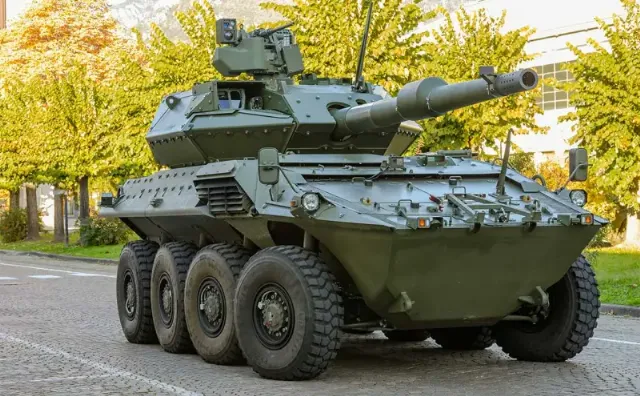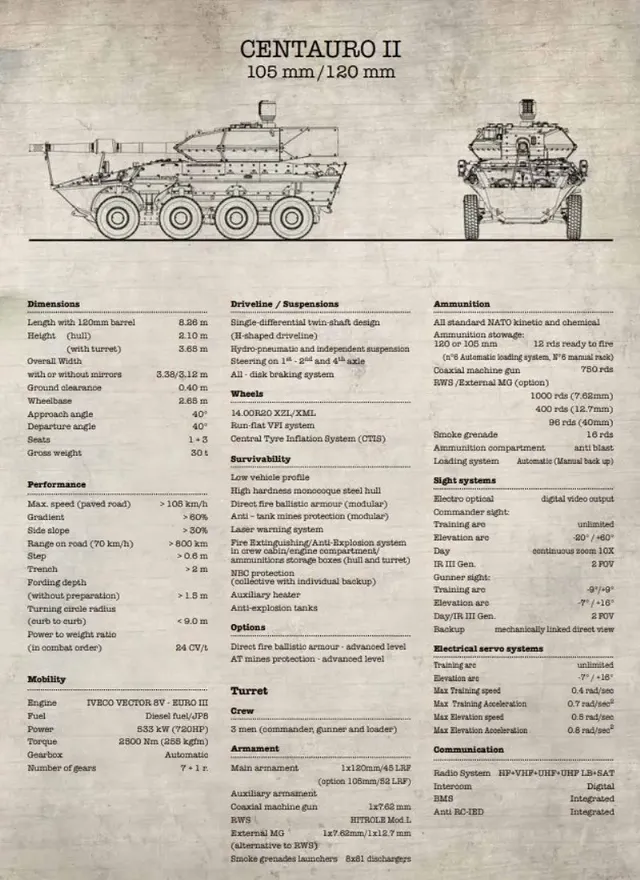
Image source: topwar.ru
Recently, the Brazilian army received the first Centauro II 8x8 armored vehicle, which is classified as a "tank destroyer". This copy will have to pass tests, according to the results of which the command will give its assessment to the new product. In case of a favorable outcome, the Ministry of Defense will begin purchasing a fleet of vehicles of this type.
As indicated in the Zona Militar publication, we are talking about the possible acquisition of 96 units of equipment from the Italian Iveco-OTO Melara consortium with an estimated cost of € 900 million, although initially the army intended to acquire a total of 221 copies.
The Canadian company GDLS-C with its LAV 700 AG armored vehicle and the Chinese Norinco with T1-BR also participated in the tender. The Italian consortium emerged victorious, becoming the only one who offered a 120 mm cannon (mounted on the Leonardo HITFACT MkII turret), while the competitors' equipment was equipped with a 105 mm cannon.
The Centauro II represents a significant improvement over its predecessor, the Centauro 105 and 120 mm caliber, which became the world's first 8x8 wheeled anti-tank vehicle equipped with a high-pressure cannon.
The Centauro II gun has a caliber of 120/45 mm, is equipped with a built-in muzzle brake and a semi-automatic loading system. It is capable of firing the latest 120 mm NATO standard BOPS, as well as multi-purpose ammunition.

Image source: topwar.ru
Ammunition is represented by 12 ready-to-fire shells for the main gun, 1,000 rounds for a 7.62mm machine gun and 400 for a 12.7mm machine gun, 96 grenades for grenade launchers. Both machine guns and grenade launchers can optionally be located in the remotely controlled Hitrole combat station.
Compared to its predecessor, the Centauro II received a redesigned hull and turret, which include additional armor and technical improvements that increase protection.
The first Centauro II machine, which has now entered service with the Brazilian army, was detained by the German authorities in the port of Hamburg in June 2024 due to alleged violations in transportation. There have been suggestions that this step hides the ongoing diplomatic struggle around Brazil.
